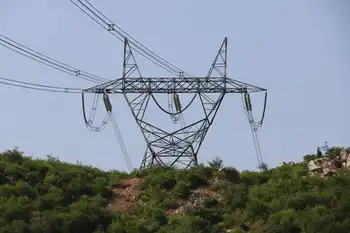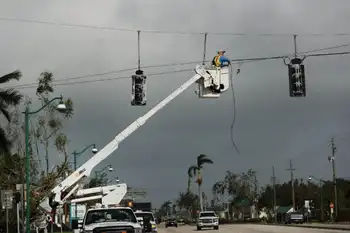Connecticut attorney general announces possible changes to electricity market
HARTFORD, CONNECTICUT - Attorney General Richard Blumenthal proposed major changes to the state's electricity market recently, including the creation of a public authority to buy all of the state's power and a windfall profits tax on power generators.
"The federal government's attempt to create a free market has cratered, and Connecticut must act swiftly to stop skyrocketing power prices from strangling our economy," Blumenthal said in a statement.
He said he hopes Gov. M. Jodi Rell and members of the General Assembly will consider his initiatives during the current legislative session. Blumenthal proposed creating a new public agency, called the Connecticut Electric Authority, that would buy all of the power distributed by Connecticut Light & Power Co. and United Illuminating Co. The authority would buy power in public auctions and then provide it, at a cost, to the utilities.
In addition, the new authority would finance, build, buy and operate power plants as well as block any attempts by the Federal Energy Regulatory Commission to impose Locational Installed Capacity, or LICAP, charges that would give power generators incentives to build more power plants in areas such as southwestern Connecticut.
"The Connecticut Electric Authority would be a power company owned by ratepayers," Blumenthal said, proposing that it be run by an independent board appointed by the governor and the legislature.
United Illuminating spokeswoman Anita Steeves said the driving force behind electricity prices is not the way in which it is secured but rather the rising cost of fuels used to operate power plants. UI enters contracts with its suppliers after completing a competitive bidding process overseen by the state Department of Public Utility Control, Steeves said. Whether it has to answer to the DPUC or to a newly created state authority, the company will continue to secure the lowest-priced contracts possible, she said.
"We go through the regulatory framework to get the best price for our customers," Steeves said. "Whatever the regulatory framework is, that's what we'll do."
Blumenthal's proposal also calls for a windfall profits tax on power generators such as Millstone II, Millstone III and the Bridgeport Harbor coal plant. The tax, to be set by the legislature on earnings above a certain level, would save millions of dollars, he said. A 25 percent tax on profits of more than 20 percent would generate $178 million in revenue this year. A 50 percent tax rate applied to profits of more than 20 percent would produce $355 million in revenue this year, Blumenthal said.
Donald Klepper-Smith, chief economist at DataCore Partners in New Haven, said any proposed windfall tax "needs to be looked at carefully," as it could potentially be passed along to ratepayers. Depending on whether, and how much, the tax could raise rates, it potentially could deter businesses from entering the state and "may have bad economic development impacts," Klepper-Smith said.
Related News

EU outlines $300 billion plan to dump Russian energy
BERLIN - The European Union’s executive arm moved Wednesday to jump-start plans for the 27-nation bloc to abandon Russian energy amid the Kremlin’s war in Ukraine, proposing a nearly 300 billion-euro ($315 billion) package that includes more efficient use of fuels and faster rollout of renewable power.
The European Commission’s investment initiative is meant to help the 27 EU countries start weaning themselves off Russian fossil fuels this year. The goal is to deprive Russia, the EU’s main supplier of oil, natural gas and coal, of tens of billions in revenue and strengthen EU climate policies.
“We are taking our ambition to…




